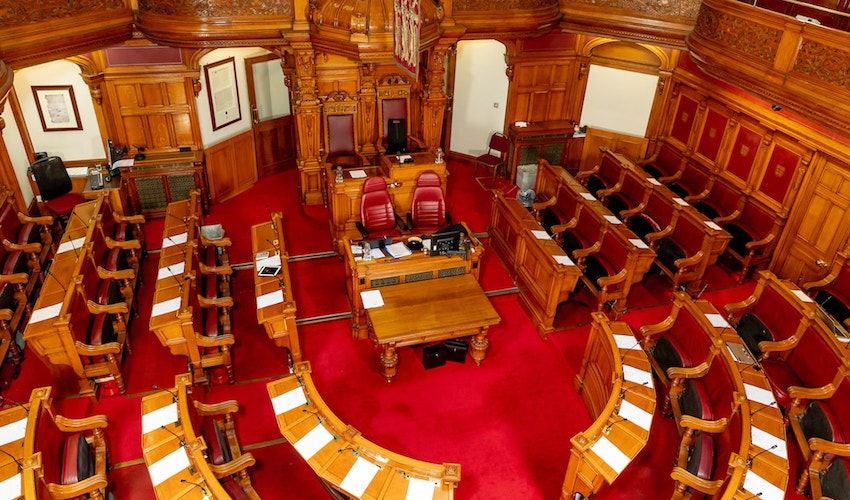


States Members are looking at establishing a new set of rules on ‘parliamentary privilege’ - the principle that allows them to speak without fear of getting sued.
Privilege grants certain legal immunities for politicians, as well as others contributing, for instance, to a Scrutiny hearing, to allow them to perform their duties without interference from outside the Assembly.
As well as providing immunity, privilege also refers to the powers of a parliament to protect its own processes - in Jersey’s case, it protects the Assembly’s standing orders from legal challenge.
It does not, however, exempt politicians from investigation or arrest for criminal offences.
The new law has been proposed by the committee in charge of running the Assembly’s own affairs, the Privileges and Procedures Committee (PPC).

Pictured: Deputy Russell Labey, Chair of the committee that has proposed the new law.
Its chair, Deputy Russell Labey, said: “Free speech in parliamentary bodies like the States Assembly is vital. It enables States Members – and people giving evidence to Scrutiny panels – to speak openly and truthfully without fear of being taking into court by people who would prefer them to be silenced.
“Without parliamentary privilege, legislatures cannot function effectively and our democratic system would be seriously undermined. These changes bring our law up to date, in line with best practice elsewhere in the Commonwealth, which I hope will provide reassurance to anyone considering standing for election in 2022.”
Although a politician’s right to speak openly might appear obvious, it is not without its critics.
In the House of Commons in 2011, UK MP John Hemming used parliamentary privilege to name Ryan Giggs as the celebrity protected by a controversial ‘super-injunction’, which received widespread condemnation from fellow MPs and senior judges for disrupting the legal process.

Pictured: UK MP John Hemming infamously used parliamentary privilege in 2011 to name Ryan Giggs as the person alleged to have had an affair with a reality TV star.
Features of PPC’s proposed law include:
These updates have been brought forward following a review by Sir Malcolm Jack, a former Clerk of the UK House of Commons which showed the need to update key aspects of the law.
Comments
Comments on this story express the views of the commentator only, not Bailiwick Publishing. We are unable to guarantee the accuracy of any of those comments.